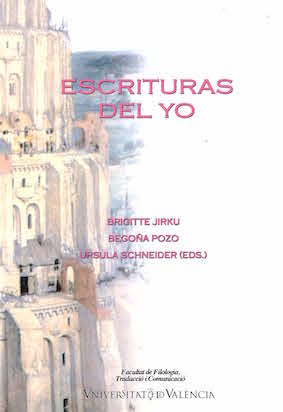Autobiografía y ficción en Viaggio a Salamanca de Raffaele Nigro
DOI:
https://doi.org/10.7203/qf-elit.v16i0.3951Paraules clau:
literatura de viatge, metaliteratura, Salamanca, Unamuno, comunicació Resum
Resum
L'assaig té com a objectiu l'anàlisi de com l'escriptor italià Raffaele Nigro utilitza els elements autobiogràfics en la descripció dels espais i en la caracterització dels personatges per convertir-los en ficció en la seva novel·la de 2001, Viaggio a Salamanca. L'article aporta la visió d'un investigador que, al seu torn, manté una llarga relació d'amistat amb l'autor de la novel·la. Es dóna la circumstància que aquest investigador és un personatge dins de l'obra així com traductor a l'espanyol de la mateixa. Aquesta proximitat personal i coneixement directe de com es va gestar la novel·la i l'aportació de cartes inèdites de Nigro permeten presentar algunes de les claus i significats poc o gens coneguts de Viaggio a Salamanca.
 Descàrregues
Descàrregues
Descàrregues
Com citar
-
Resum465
-
PDF (Español)177
Número
Secció
Llicència
 Este obra está bajo una licencia de Creative Commons Reconocimiento-NoComercial-SinObraDerivada 4.0 Internacional.
Este obra está bajo una licencia de Creative Commons Reconocimiento-NoComercial-SinObraDerivada 4.0 Internacional.
Tots els documents inclosos a OJS són d'accés lliure i propietat dels seus autors i/o institucions editores, i per tant, qualsevol acte de reproducció, comercialització, comunicació pública o transformació total o parcial necessita el consentiment exprés i escrit d'aquests.
________
Authors who publish with this journal agree to the following terms:
- Authors retain copyright and grant the journal right of first publication with the work simultaneously licensed under a Creative Commons Attribution License that allows others to share the work with an acknowledgement of the work's authorship and initial publication in this journal.
- Authors are able to enter into separate, additional contractual arrangements for the non-exclusive distribution of the journal's published version of the work (e.g., post it to an institutional repository or publish it in a book), with an acknowledgement of its initial publication in this journal.
- Authors are permitted and encouraged to post their work online (e.g., in institutional repositories or on their website) prior to and during the submission process, as it can lead to productive exchanges, as well as earlier and greater citation of published work (See The Effect of Open Access).




